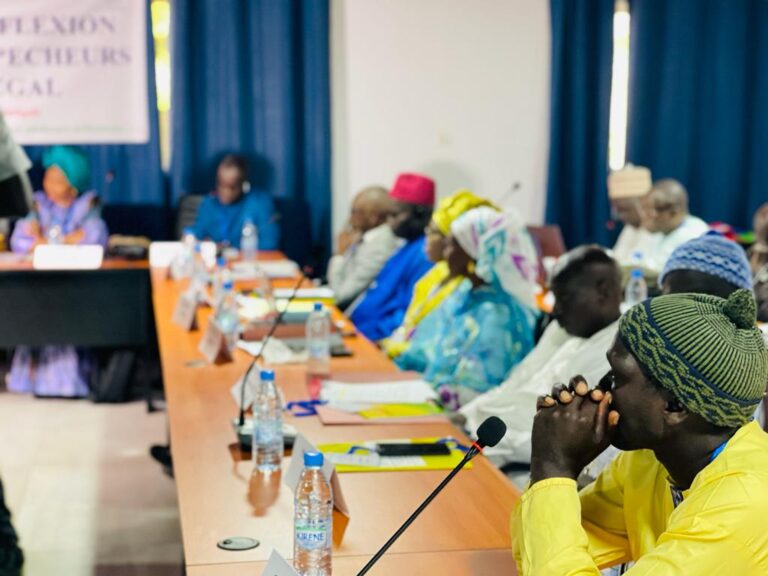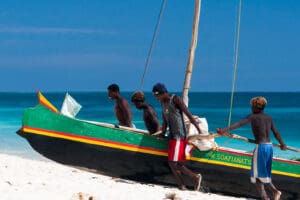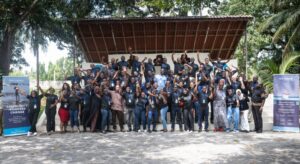In an important effort to tackle escalating conflict over depleting fish stocks, Blue Ventures convened a reconciliation workshop with fisheries stakeholders from across Senegal to help resolve a tragic outbreak of violence between rival fishing communities.
Senegal’s rich fisheries historically played a vital role in employing around 600,000 people and feeding the nation’s rapidly growing population of nearly 17 million people. However, industrial overfishing, driven in part by an expanding fishmeal industry has led to plummeting fish stocks and soaring market prices, intensifying the crisis for fishing communities.
West Africa has been consistently identified as one of the global hotspots for industrial fishing and illegal, unregulated, and unreported fishing. Intensive industrial overfishing, driven by foreign demand for seafood, is threatening many fish stocks that are central to the food security of the region. Artisanal fishers often lose their gear to industrial vessels and compete for the same fish stocks.
The situation is further exacerbated by an explosive growth in fishmeal factories in Senegal, The Gambia and Mauritania. These factories turn what was once a crucial source of protein and nutrition for West Africans into fishmeal, which is exported internationally for animal feed.
As catches plummet, conflicts increase between fishers as they compete to catch a dwindling resource. That competition erupted into open violence between fishers from Kayar and Mboro in April this year when Mboro fishers’ illegal nets were found in the Kayar Community-managed Marine Protected Area. The situation escalated dramatically when Mboro fishers attacked Kayar fishers with petrol bombs, tragically resulting in a young man’s death and injuring dozens of others. The violence threatened to spin even further out of control, with thousands of other fishers threatening to join the fight in support of the Mboro fishers. This level of conflict had never been seen between fishers in Senegal before, shocking the nation and threatening the stability of the entire fishing community.
In response, Blue Ventures and the Association for the Development of Artisanal Fisheries (ADEPA) with support from the Ministry of Fisheries, convened a national reconciliation workshop to find solutions to lower the tensions and prevent further conflict. Participants committed to raise awareness about regulations and create a conflict resolution committee to help respond rapidly to emerging conflicts. The workshop also proposed the introduction of participatory approaches to fisheries policy development and community-led methods of fisheries surveillance. The meeting demonstrated willingness of the Senegalese authorities, including the Ministry of Fisheries, to work with civil society, religious leaders, and artisanal fishers to work together to find solutions to the conflict.


















